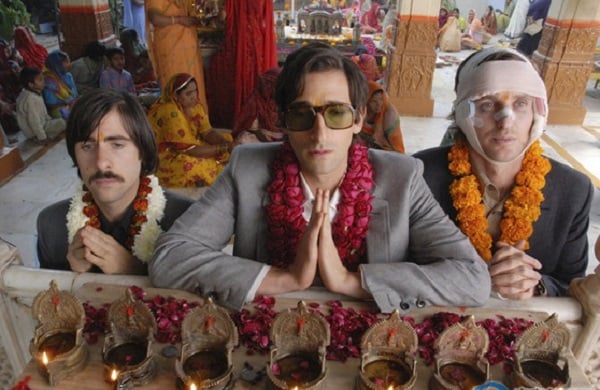
We in the West have been sold a myth hook, line, and sinker.
This myth is pervasive in the media—the same which glorifies fame and its story of success. Its delusional imprint has been borrowed by the West’s “spiritual teachers.”
Hollywood has been promoting this idea since the beginning of film—an exaggerated or idealised conception of our purpose that places us at the apex of a treadmill toward a glorified and outward “success,” placed at the end of our struggles. It is the capitalist dream to perpetuate consumerism and encourage retail therapy.
The myth is so ubiquitous that it has found its way into spiritual theories and the New Age ideology. Spiritual seekers yearning for signs and asking for supernatural miracles are attached to an idea of their significance. I’ve met many young seekers who believe they have a special purpose that is key to the world’s unfolding.
The fulcrum of this myth is that we are not inherently worthy, and the less we are worth, the more we need to buy a product to make us feel better. The less we are “enough,” the more likely it is we will feel the need to buy something. Advertisers play on our vulnerabilities and perpetually promote more “feel-good” deceptions to keep us buying.
The myth says we are inherently worthless and have no intrinsic value—hence the need to prove ourselves repeatedly and consume (a lot of) goods and services to fill the gap.
The other extreme is to say we are “everything.” Both feed on the same basic desire for meaning and purpose.
New Age teachers beat the drum of emptiness and sell their programs to feed the myth that we have a significance in the world that will be announced and demonstrated in a magnanimous way.
Somewhere between being the centre of the universe and being a speck of dust in the Milky Way lies a point of view that may quench those thirsting for significance and fulfill those searching souls on the other end of the spectrum.
In a material world, success is often linked to outward achievement, position, and the demonstration of prosperity. Celebrity is placed on the top-wrung in terms of societal aspiration, status, and appreciation. Whilst the capitalistic system is built on consumerism and the crescendo of the pyramid is ownership—what happens when people don’t achieve their aspirations and fall into despair or emptiness?
Similarly, in the application of the material model to a spiritual or New Age world-view, there is a tendency to copy the capitalist model and define our success by achievement of spiritual goals. Or, we merely copy and paste success through the same matrix—books sold, wealth acquired, and celebrity status achieved.
The down side to these thought-forms around success is that often fame, even when achieved, is short-lived. Or, when we do “achieve” a goal, what if we still feel the same, or even more empty? What if little or nothing in our internal world-view shifts? If we value ourselves on any outward acquisition, material can change in an instant. And, rather, if the currency of success is reputation, that can also shift quickly. The higher our personal Tower of Babel is in the sky, the further it may all fall down into a heap of sand.
It’s valuable to meditate on our programmed idea of success and examine whether it is worthy and still applies to us.
Really, it is perspective that creates our world, and if we cast away the debris of cultural programming, indoctrination, religious dogma, familial patterns, social conditioning, limiting thought-forms, and beliefs, we will be free to start over and create something new we desire.
The true meaning of Buddhist dharma is that each person has a holistic life purpose, a grounded meaning that includes being a son or daughter—a human being with presence and value—not music of the stars.
When we seek some grand, awakened purpose outside of ourselves, we place pressure on life to produce a big statement. And then if CNN doesn’t cover us, we think we have failed in our dharma and the world could easily fall into a sad and lonely place. If our ego is attached to a grand purpose, it may be devastating if we fail in our chosen purpose, or worse, can’t even find our purpose.
Mature dharma is a perspective on life where we accept all that is real and respect all that is imagined, enjoying our life’s journey with the understanding that we are here to be human and to express ourselves. Our very existence is meaningful. We don’t need a “special” or fancy label like “professor,” “lama,” “doctor,” or “guru” to be purposeful and fulfilling the purpose of our lives. We don’t need a bestselling book or even a fake “bestselling” label on our book to be significant and completely lovable just as we are.
A grounded perspective means we don’t have to face the weight of either expectation or the weight of failure. We can just live in the moment, go with the flow of life, and let go of all the expectations and attachments to “being something in the world.” When we let go like this, it actually opens up a space for creation and possibility. Non-defined space is what is limitless. That is the realm of living truly in the moment—meeting life where it is—staring it in the face and accepting what we see looking back at us.
Our lives may not always be simple and easy, as we are not a Hollywood cinema moment. In a typical film, do you ever see the real time people spend and the time between the action? Perhaps if you also were to create a showreel of the highlights of your life, it would give you an elevated feel of significance, leaving out all those down times and months where not much exciting was happening. Because of our fast-paced lifestyles, we want to fast-forward through the slow and gritty times and get to the punch-line. We want to solely experience the high emotion, elation, and drama.
We need the down-time—relaxation. We don’t always need to be achieving something or finding something like “our dharma.” It isn’t lost and it never was.
Our dharma is who we are; it’s always with us.
As Lemony Snicket, from A Series of Unfortunate Events, teaches:
“At times, the world may seem an unfriendly and sinister place, but believe that there is much more good in it than bad. All you have to do is look hard enough, and what might seem to be a series of unfortunate events may in fact be the first steps of a journey.”
So stop searching, relax, take a few breaths, and enjoy this moment—the only moment that exists. Right now.
~
~
~
Author: David Arenson
Image: YouTube screenshot
Editor: Danielle Beutell
Copy Editor: Travis May
Social Editor: Nicole Cameron








Read 38 comments and reply